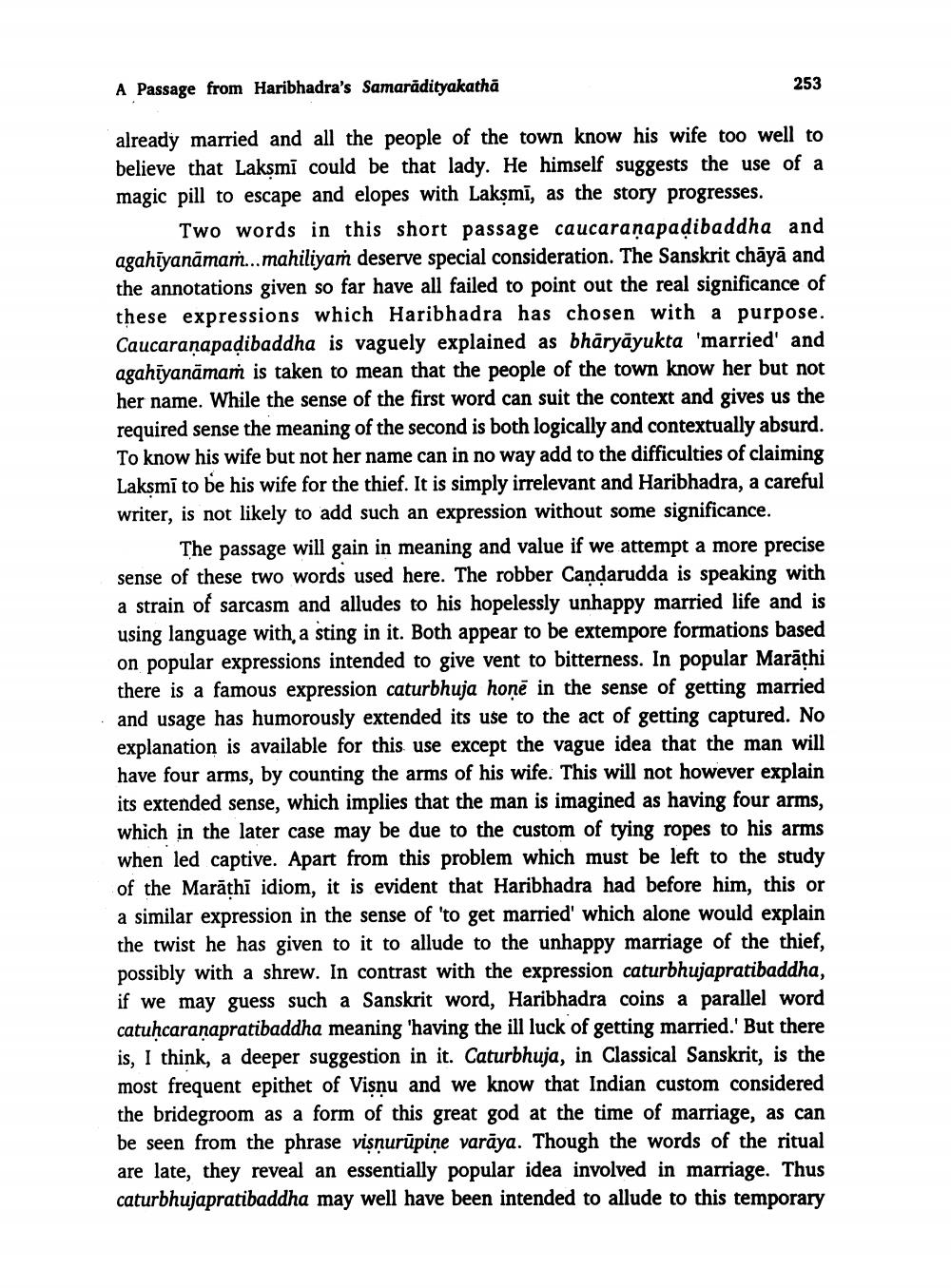________________
A Passage from
Haribhadra's Samaradityakatha
253
already married and all the people of the town know his wife too well to believe that Laksmi could be that lady. He himself suggests the use of a magic pill to escape and elopes with Laksmī, as the story progresses.
Two words in this short passage caucaranapadibaddha and agahiyanāmam... mahiliyam deserve special consideration. The Sanskrit chāyā and the annotations given so far have all failed to point out the real significance of these expressions which Haribhadra has chosen with a purpose. Caucaranapadibaddha is vaguely explained as bhāryāyukta 'married' and agahiyanāmam is taken to mean that the people of the town know her but not her name. While the sense of the first word can suit the context and gives us the required sense the meaning of the second is both logically and contextually absurd. To know his wife but not her name can in no way add to the difficulties of claiming Laksmī to be his wife for the thief. It is simply irrelevant and Haribhadra, a careful writer, is not likely to add such an expression without some significance.
The passage will gain in meaning and value if we attempt a more precise sense of these two words used here. The robber Candarudda is speaking with a strain of sarcasm and alludes to his hopelessly unhappy married life and is using language with a sting in it. Both appear to be extempore formations based on popular expressions intended to give vent to bitterness. In popular Marāthi there is a famous expression caturbhuja honē in the sense of getting married and usage has humorously extended its use to the act of getting captured. No explanation is available for this use except the vague idea that the man will have four arms, by counting the arms of his wife. This will not however explain its extended sense, which implies that the man is imagined as having four arms, which in the later case may be due to the custom of tying ropes to his arms when led captive. Apart from this problem which must be left to the study of the Marāthī idiom, it is evident that Haribhadra had before him, this or a similar expression in the sense of 'to get married' which alone would explain the twist he has given to it to allude to the unhappy marriage of the thief, possibly with a shrew. In contrast with the expression caturbhujapratibaddha, if we may guess such a Sanskrit word, Haribhadra coins a parallel word catuhcaranapratibaddha meaning 'having the ill luck of getting married.' But there is, I think, a deeper suggestion in it. Caturbhuja, in Classical Sanskrit, is the most frequent epithet of Visnu and we know that Indian custom considered the bridegroom as a form of this great god at the time of marriage, as can be seen from the phrase vişnurūpine varāya. Though the words of the ritual are late, they reveal an essentially popular idea involved in marriage. Thus caturbhujapratibaddha may well have been intended to allude to this temporary




